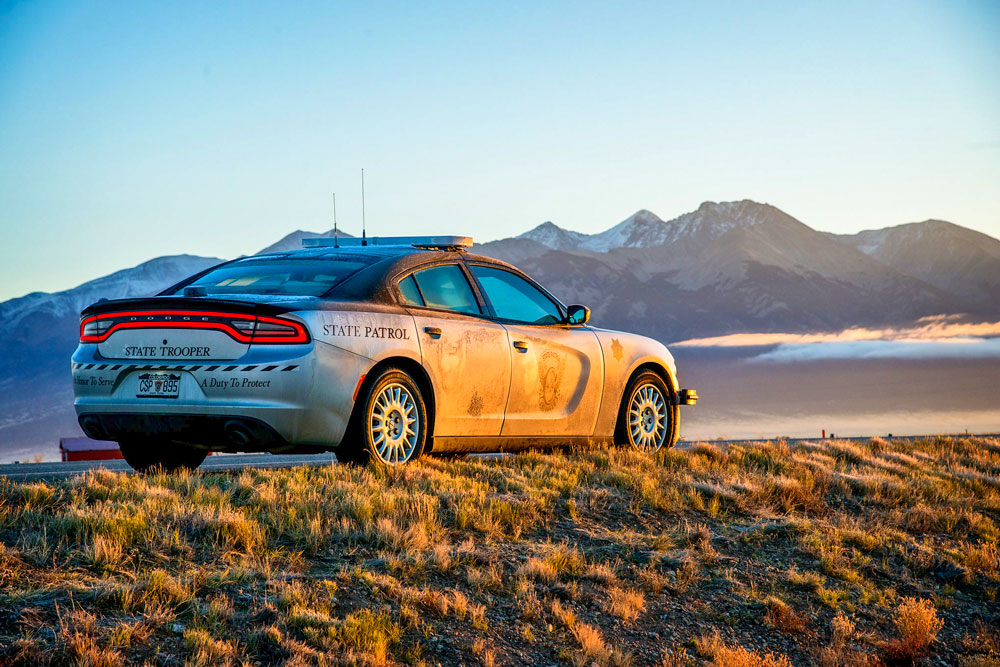Colorado State Patrol now accepting digital IDs
By Chris Michlewicz; photo courtesy of the Colorado State Patrol

Troopers for the Colorado State Patrol started accepting digital IDs from motorists on November 30. The contactless means of conveying personal information was found to reduce traffic stop times by 10%.
A contactless way for motorists to share their identification, vehicle registration and proof of insurance with state troopers has arrived in Colorado.
The Colorado State Patrol, which conducts law enforcement on interstates and some state highways, began accepting Colorado digital IDs on November 30, 2020. Colorado is the first state in the nation to offer residents the option to electronically transmit their digital information. Acceptance of digital ID by the state patrol is the latest step in Colorado’s journey to widely adopt digital personal identification technology.
The digital IDs were developed prior to the COVID-19 pandemic, but are proving particularly useful with the public safety precautions currently in place. The IDs were originally introduced in late 2019 as a quick and easy way to provide proof of identity, age and address for citizens who are interacting with government agencies and certain businesses within Colorado.
More than 300 restaurants, bars, businesses and state agencies have joined the myColorado Partner Program and already accept the Colorado Digital ID. Approximately 75,000 residents have downloaded the myColorado app, which makes the touchless exchange possible.
More than 20 police departments and sheriff’s offices around the state have expressed interest in testing the digital ID with their equipment beginning this month. The Douglas County Sheriff’s Office does not yet accept digital forms of identification, said Public Information Officer Lauren Childress. It’s unclear when or if the sheriff’s office might adopt the technology.
The state patrol says digital IDs are a convenient and secure way for troopers to interact with the public. The IDs feature a free-floating hologram image that moves when the ID is rotated. “The hologram is something that would be very, very hard for someone to counterfeit,” said Master Trooper Gary Cutler, public information officer for the Colorado State Patrol.
Initial testing in November showed the technology resulted in a 10% reduction in trooper processing time during a standard traffic stop. Troopers provide a QR code that motorists scan with their cellphone (see related story page 8). A secured message containing the personal information is then sent to the trooper.
The state agency has also looked at the possibility of issuing digital tickets, but barriers remain because local court systems are not yet equipped to accept such tickets, Cutler said.
Motorists are advised to continue carrying their physical ID in case of technical issues or for use during a traffic stop with a department that does not yet accept digital IDs.